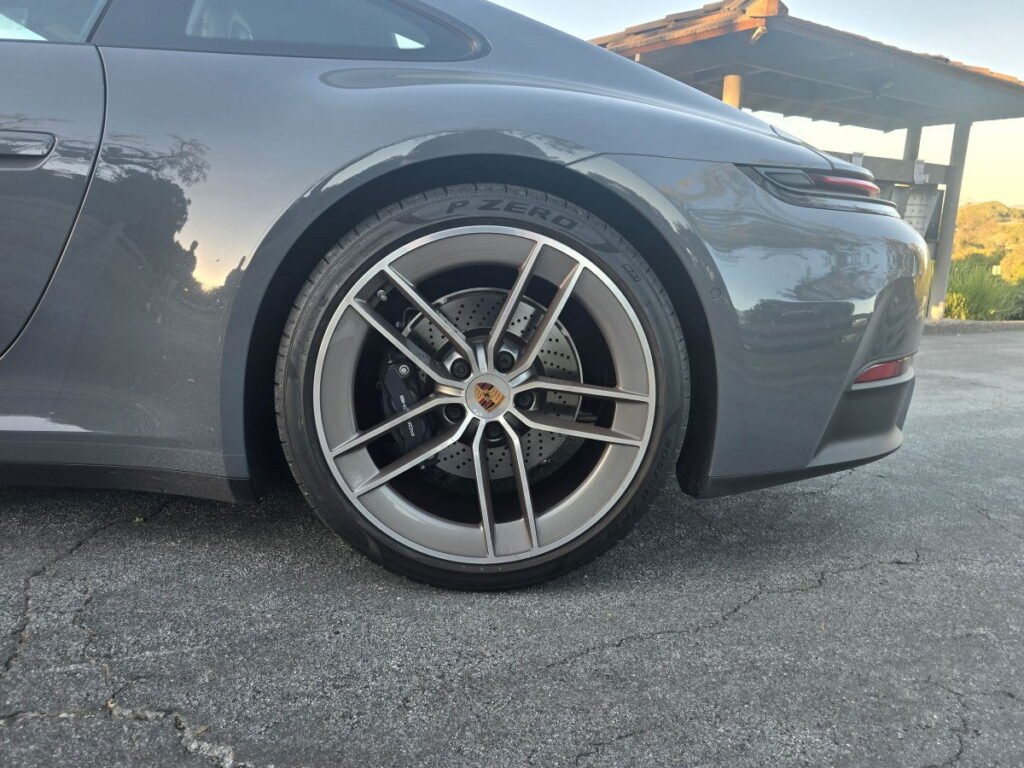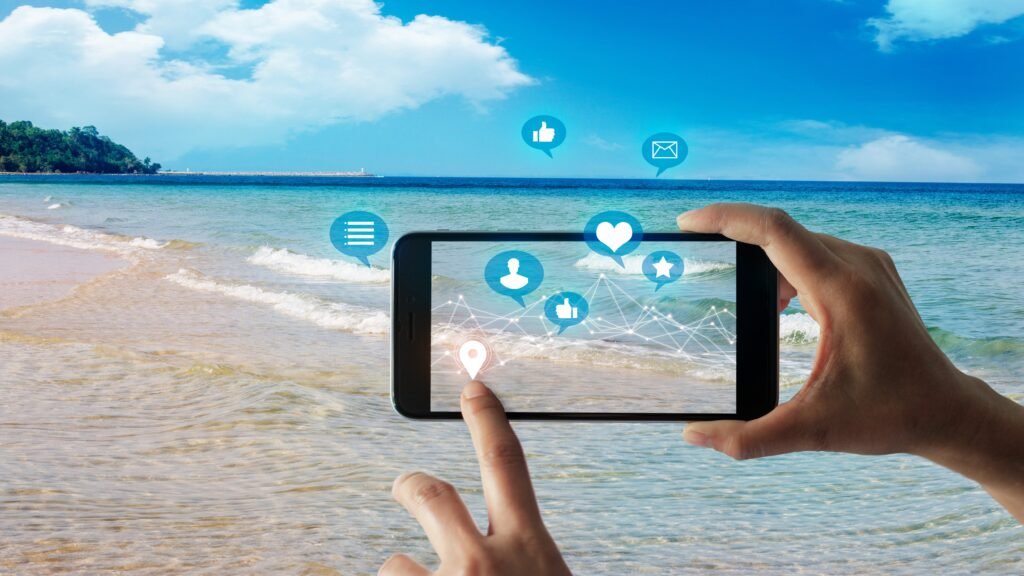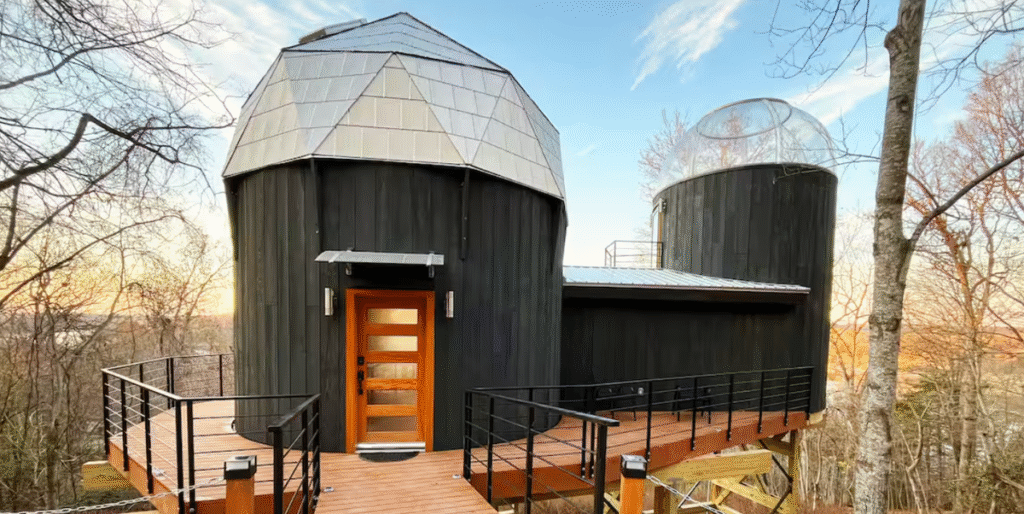I thought I was blending in perfectly at that café in Prague. Vintage Levi’s, minimalist black tee, even left my Yankees cap at the hotel. Then I opened my mouth to order “a large iced coffee with oat milk, extra shot, light ice” and watched the barista’s face cycle through confusion, amusement, and finally, recognition. American.
It wasn’t the accent that gave me away—it was the entire performance. The volume. The specificity. The assumption that my intricate coffee algebra would translate across continents. I might as well have been wearing a fanny pack full of dollars while singing the national anthem.
Here’s the thing: we’re not as subtle as we think we are. And after years of collecting these moments of exposure (and watching other Americans collect theirs), I’ve cataloged the tells that announce our nationality louder than any passport stamp.
1. You’re having a conversation with the entire restaurant
My friend’s whisper in Barcelona could be heard three tables away. “This isn’t even that loud,” she protested when I mentioned it. But here’s the thing—American “indoor voice” is everyone else’s “projecting to the back row.”
We’re socialized in a culture where enthusiasm equals volume, where restaurants play music at nightclub levels and conversation becomes competition. But in a Parisian bistro where you can hear forks touching plates two tables over, your normal speaking voice sounds like you’re calling plays at a football game.
The tell isn’t just volume—it’s the performance aspect. We narrate our experiences as we’re having them, provide running commentary on the meal, the wine, the waiter’s accent. We’re the director’s commentary on our own vacation.
2. Your coffee order requires a paragraph
“Can I get a medium—sorry, what’s your medium called? Grande? Okay, a grande half-caf soy latte, extra hot, with two pumps of vanilla and extra foam?”
Meanwhile, across Europe, millions of people are ordering their coffee with one word: “Café.”
Our baroque coffee rituals expose us instantly. Not just the modifications—though watching an Italian barista’s face while you explain what “half-caf” means is its own form of entertainment—but the expectation that coffee comes in sizes beyond “small cup” and temperatures beyond “hot.”
That iced coffee that betrayed me in Prague? Might as well have worn a sign saying “I need my beverages to multitask as dessert and temperature regulation system.”
3. You’re dressed for every possible weather event
The North Face jacket. The zip-off pants that convert to shorts. The moisture-wicking everything. The shoes that could summit Kilimanjaro but are being used to navigate cobblestones.
Europeans pack for the weather they’ll have. Americans pack for the weather apocalypse that might occur. We’re the ones sweating in our “just in case” layers, carrying backpacks with emergency supplies for our afternoon in the Louvre.
The peculiar American anxiety about being unprepared manifests in our tourist uniforms—technical fabrics, multiple pockets, shoes that scream “I might need to flee at any moment.” It’s not just practical; it’s existential. We dress like we’re expecting the vacation to suddenly require wilderness survival skills.
4. You’re asking “Do you speak English?” in English
The phrase itself isn’t the problem—it’s the delivery. The expectation. The slight surprise when the answer is no.
The real tell is what happens next: the slower, louder English, the hand gestures that wouldn’t clarify anything in any culture, the phone immediately produced to Google Translate what could have been communicated with three words in the local language.
“Où est la gare?” Where is the station? Three words that would have taken five minutes to learn and would buy you infinite goodwill. Instead, we’re typing “train station near me” into our phones while standing in front of a sign that says “Gare” with an arrow.
5. Your personal space bubble is showing
Watch an American at a European ATM, and you’ll see them create a DMZ worthy of international treaty. We back away from counters after ordering, stand at arm’s length from store clerks, maintain elevator distances in casual conversation.
Our invisible bubbles bump into everything. The Roman concept of personal space could fit in our coat pockets. When someone stands close enough that you can smell their shampoo, we instinctively step back. They step forward. We step back. It’s the tourist tango, and we’re always the ones leading backward.
The distance we maintain while talking, queuing, existing—it all reads as cold, aloof, or worse, suspicious. Like we’re planning to run at any moment. Which, given our footwear, we apparently are.
6. You’re Instagramming instead of experiencing
Not just taking photos—everyone does that. It’s the production value. The multiple angles. The asking strangers to move so you can get the shot. The immediate editing and posting while still standing in front of the thing you came to see.
The American tourist treats destinations like sets. We’re location scouting our own vacations, experiencing places through screens before we’ve experienced them with our eyes. That sunset in Santorini? We watched it through our phones while livestreaming it to people watching their phones.
But the real tell is the disappointment when reality doesn’t match the Pinterest board. When the Trevi Fountain is crowded, under construction, or simply can’t be captured from the angle that got 50K likes. We’re not just documenting experiences—we’re creating content. And everyone can tell the difference.
7. You’re tipping like you’re still in Kansas
Either we’re overtipping (leaving 20% in countries where 10% is generous) or we’re paralyzed by uncertainty and leaving nothing. Both mark us instantly.
The American relationship with tipping is so complex, so fraught, that we export our anxiety everywhere we go. We slip euros to people who are insulted by it, or we stiff servers who depend on it because we heard “service is included.”
But it’s not just the money—it’s the performance of tipping. The visible calculation, the whispered conference with travel companions, the googling of “how much to tip in Portugal” while the server waits. Our tipping anxiety is like a neon sign flashing “I don’t understand your customs but I’m trying to math my way through them.”
8. You’re eating dinner at 6 PM
Walking into a Madrid restaurant at what we consider normal dinner time is like walking into a movie theater during the credits. The lights are on, someone’s mopping, and the only other people there are confused tourists clutching their guidebooks.
Our meal timing reveals our entire cultural operating system. The need to eat dinner when it’s still light out. The panic when shops close for siesta. The confusion at kitchen hours. We’re operating on American Standard Time in countries that think midnight is a perfectly reasonable hour for dessert.
The early dinner isn’t just about hunger—it’s about the whole cascade of timing that follows. In bed by 10, up at 6, ready to “beat the crowds” at attractions that don’t open until 10. We’re perpetually out of sync, living our vacation on a parallel timeline that intersects with local life only accidentally.
9. Your enthusiasm is set to eleven
“Oh my God, this is AMAZING! Honey, look at this! This is the BEST gelato I’ve ever had! We have to come back here tomorrow! Actually, can you take a picture of me with the gelato?”
Europeans appreciate things. Americans perform appreciation. We’re not just eating gelato—we’re having a gelato experience that must be narrated, documented, and rated against all other gelato experiences.
Our enthusiasm reads as insincerity, even when it’s genuine. The constant superlatives, the need to share every reaction, the reviews delivered in real-time to no one in particular. We can’t just quietly enjoy things. We’re the human equivalent of reaction videos, providing commentary on our own experiences as they happen.
10. You’re moving through cities like you’re checking boxes
The Vatican ✓ The Colosseum ✓ The Trevi Fountain ✓ That place from Eat Pray Love ✓
We don’t visit cities; we complete them. Like video game levels with achievement points. The American tourist with their pre-planned route, tickets booked months in advance, every moment optimized for maximum sightseeing efficiency.
But it’s the anxiety that gives us away. The checking of phones to ensure we’re on schedule. The mild panic when a museum takes longer than allocated. The way we eat lunch not when we’re hungry but when it fits between the morning tour and the afternoon reservation.
We’ve turned leisure into labor, vacation into vocation. And everyone else can see us working way too hard at relaxing.
The plot twist nobody tells you
Here’s what I’ve learned after years of being spotted from across piazzas: trying not to be recognized as American is the most American thing you can do.
The harder we try to blend in, the more we stand out. The very effort—the studied casualness, the practiced phrases, the carefully curated “local” wardrobe—is itself a performance that everyone recognizes.
The Europeans smoking outside that Prague café weren’t judging me for being American. They were amused by my elaborate attempts to pretend I wasn’t. My coffee order didn’t offend them—my embarrassment about it did.
Because here’s the secret: everyone knows you’re a tourist. Your hotel key card is poking out of your pocket. You’re holding your phone with Maps open. You have that slightly lost look of someone experiencing rather than living in a place.
The mistake isn’t being American. It’s apologizing for it while simultaneously embodying every stereotype. It’s the performance of worldliness that reveals our provincialism, not the provincialism itself.
Own your coffee modifications. Speak at your natural volume (okay, maybe take it down just a notch). Accept that you’ll never quite crack the tipping code. Stop trying to cosplay as a local and just be a respectful visitor.
The real mistake isn’t any of these tells—it’s believing that being recognized as American is something to be ashamed of. We’re all tourists somewhere. The goal isn’t invisibility; it’s humility.
And maybe, just maybe, learning to order coffee with fewer than twelve words.


